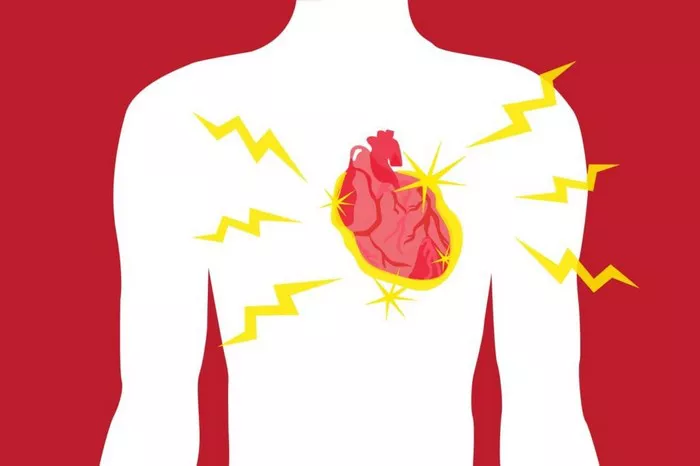The COVID-19 pandemic has brought numerous health challenges to the forefront, one of which is the impact of the virus on the cardiovascular system. Among the complications observed in patients recovering from COVID-19, dilated cardiomyopathy (DCM) has emerged as a significant concern. This article aims to explore the relationship between COVID-19 and dilated cardiomyopathy, examining how the virus can lead to this serious heart condition.
What Is Dilated Cardiomyopathy?
Dilated cardiomyopathy is a condition characterized by the dilation of the heart chambers, particularly the left ventricle, which leads to a decrease in cardiac function. The heart becomes enlarged and weakened, impairing its ability to pump blood effectively. Symptoms may include fatigue, shortness of breath, swelling in the legs and abdomen, and irregular heartbeats. The condition can be caused by various factors, including genetic predisposition, alcohol abuse, certain infections, and autoimmune diseases.
Causes of Dilated Cardiomyopathy
Genetic Factors: Family history can play a significant role in DCM.
Infections: Viral infections are among the leading causes of DCM.
Toxins: Exposure to certain drugs or alcohol can damage heart muscle.
Autoimmune Diseases: Conditions like lupus or rheumatoid arthritis can affect heart health.
Mechanisms of Cardiac Injury in COVID-19
The mechanisms through which COVID-19 affects the heart include:
Direct Viral Infection: SARS-CoV-2 can infect cardiac myocytes via the angiotensin-converting enzyme 2 (ACE2) receptor.
Cytokine Storm: Severe cases of COVID-19 often result in an overwhelming inflammatory response that can damage cardiac tissues.
Thromboembolic Events: Increased coagulability associated with COVID-19 can lead to blood clots affecting coronary arteries.
How COVID-19 Can Lead to Dilated Cardiomyopathy
Recent studies have suggested a link between COVID-19 and the development of dilated cardiomyopathy. The following points outline how this connection may occur:
Immune Activation and Myocardial Injury
Persistent immune activation following SARS-CoV-2 infection may increase the risk of developing DCM. The inflammation caused by the virus can lead to myocardial injury, which over time may progress to dilated cardiomyopathy.
Evidence from Clinical Studies
Clinical data indicate that elevated levels of cardiac biomarkers such as troponin are common in patients with severe COVID-19. Elevated troponin levels are associated with myocardial injury and correlate with poor outcomes in these patients.
A systematic review found that up to 30% of hospitalized COVID-19 patients exhibit signs of cardiac injury3. In some cases, this injury manifests as myocarditis, which can subsequently progress to dilated cardiomyopathy if not adequately addressed.
Case Reports Highlighting DCM Post-COVID
Several case reports have documented instances where patients developed DCM following a COVID-19 infection:
A young male patient presented with chest pain and elevated cardiac enzymes after recovering from COVID-19. Cardiac imaging confirmed dilated cardiomyopathy attributed to viral myocarditis.
A pediatric case reported silent myocarditis progressing to DCM in a child months after mild COVID-19 symptoms.
These cases underscore the potential for DCM as a sequela of COVID-19 infection.
Risk Factors for Developing DCM After COVID-19
Certain factors may increase the likelihood of developing dilated cardiomyopathy following a COVID-19 infection:
Pre-existing Heart Conditions: Patients with prior cardiovascular disease are at higher risk.
Severity of Initial Infection: Severe cases of COVID-19 that require hospitalization are more likely to result in cardiac complications.
Age and Comorbidities: Older adults and those with comorbidities such as obesity or diabetes are at increased risk.
Diagnosis of Dilated Cardiomyopathy Post-COVID
Diagnosing dilated cardiomyopathy involves several steps:
Clinical Evaluation
Healthcare providers will assess symptoms such as fatigue, dyspnea, and edema during a physical examination.
Imaging Studies
Echocardiography is essential for evaluating heart structure and function. It helps assess left ventricular dilation and ejection fraction.
Biomarker Testing
Blood tests measuring cardiac biomarkers like troponin I and B-type natriuretic peptide (BNP) provide insight into myocardial injury and heart failure severity.
Advanced Imaging Techniques
Cardiac magnetic resonance imaging (MRI) is increasingly used for detailed assessment of myocardial inflammation and fibrosis associated with myocarditis.
Management Strategies for DCM Post-COVID
The management of dilated cardiomyopathy following COVID-19 focuses on improving heart function and addressing underlying causes:
Pharmacological Treatment
ACE Inhibitors/ARBs: These medications help reduce blood pressure and decrease strain on the heart.
Beta-blockers: Used to manage heart rate and improve cardiac output.
Diuretics: Help reduce fluid overload in patients experiencing edema.
Lifestyle Modifications
Patients are advised to adopt heart-healthy lifestyle changes:
Dietary Changes: A low-sodium diet can help manage blood pressure.
Regular Exercise: Tailored exercise programs improve cardiovascular health.
Weight Management: Maintaining a healthy weight reduces strain on the heart.
Conclusion
The relationship between COVID-19 and dilated cardiomyopathy is an emerging area of research that highlights significant cardiovascular risks associated with SARS-CoV-2 infection. As we continue to learn about the long-term effects of COVID-19 on heart health, it is essential for healthcare providers to remain vigilant in monitoring patients who have recovered from the virus for potential cardiac complications such as dilated cardiomyopathy.
Related topics:


